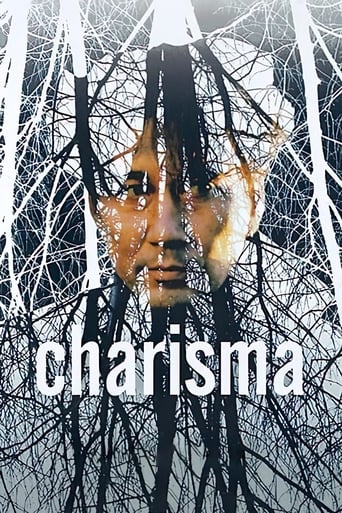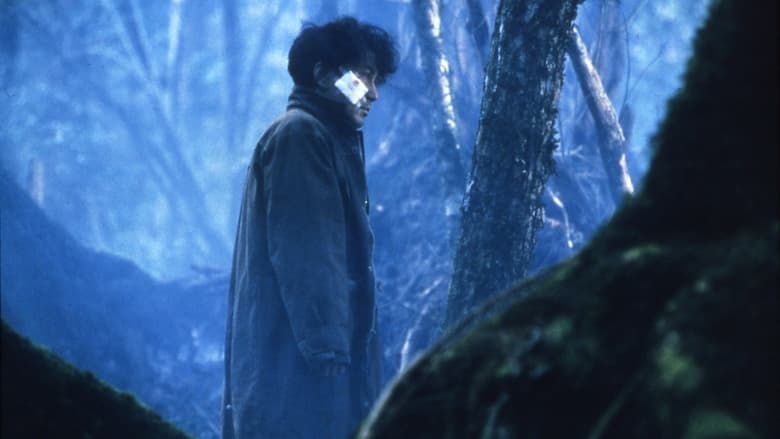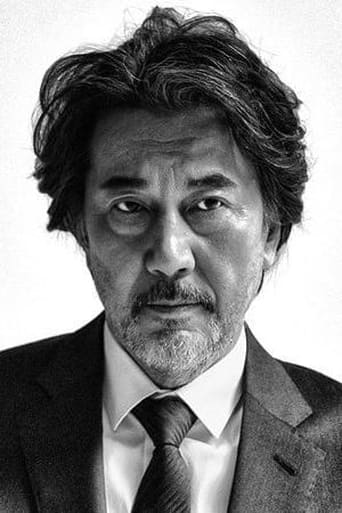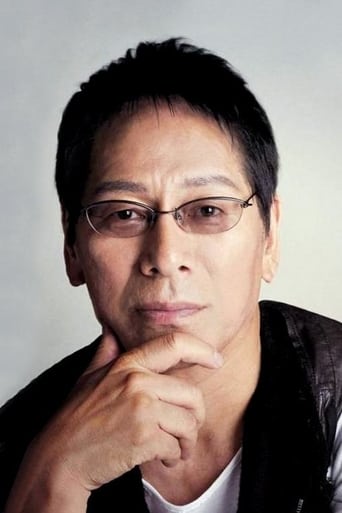

Charisma (1999)
A seasoned detective is called in to rescue a politician held hostage by a lunatic. In a brief moment of uncertainty, he misses the chance for action. Leaving his job and family without explanation, he makes his way to a mountain forest, encountering a peculiar tree called Charisma.
Watch Trailer
Cast


Reviews
This is one of the strangest, complex films I've ever seen. When you read the synopsis, you'll probably realise that the writer and director, Kiyoshi Kurosawa, is working on many different levels, and you'll equally stay involved with the story due to the outstanding visuals. Kurosawa's camera work is typically brilliant, allowing the viewer to escape into the mysterious rural Japanese landscape.Part philosophical drama, part social study, part ecological investigation, part surrealistic, Kafkaesque black comedy, Kurosawa has clearly crafted a film that demands repeated viewings. My first viewing was focused on the ecological themes present throughout the film; the whole idea of man's control over nature, without realising that nature doesn't reason. It just is. Applying Spinozan logic, nature is the infinite essence of the universe and doesn't need controlling. Nature doesn't act out of emotion and reason; it is perfect and simply is. There's just so much more thematic material open to interpretation so it's hard to place one specific genre to the film, but Kurosawa skillfully builds up disturbing dramatic moments with his trademark perfect camera work, boasting stellar cinematography of the Japanese landscape.The film might not be my favourite, but 'Charisma' is certainly up there as one of Kurosawa's best films. If you're interested in strange but nonetheless interesting examinations of reality, then be sure to check this one out.
The first time I watched this was with my mother. My parents were always victims when I wanted to watch 'artistic' videos. Charisma was very engaging and my mom made it to the end. The main character, a detective, goes on a vacation to clear his mind and gets involved in the problems of a small town, mostly surrounding a dead tree nicknamed 'Charisma'. The director takes this minimal theme and keeps it interesting throughout. At one point the detective comes to a realization that the town's obsession with this tree is just stupid, and that it's a sort of metaphor for all of his own problems of dealing with people in his own life. When the end credits began to roll, my mom felt so insulted that she actually said 'WHAT THE HELL, IS THAT IT?" For years, anytime we parked at a shopping mall or supermarket, my mom would point at a tree and say 'park over there, by Charisma'. We always had a good laugh, and that kept the movie in our minds. No other film stuck in my mom's mind, ever.But the film grew on not just me and my mom, but everyone who I unwittingly got to watch it. Yes, I've seen Charisma many times, and LOVE it. If a director can take a dead tree, make a film around it, and make people sit through it, hate it, then come back to it, that's entertainment.Think of cult films like Rocky Horror Picture Show. Charisma has the elements of what makes a great cult movie, yet it's filmed in such a stylish and enjoyable way - the characters are all especially likable - that you can't pass this off as just b-movie stuff. It's a classy, one-of-a-kind film about a dead tree, told in a poetic, yet cinematically fun way that will just draw you back to watch now and then, with new people in tow just to see their reactions.I wish there were more films like this. But even Kiyoshi Kurosawa, who directed Charisma, never struck lightning twice. This, in my opinion, is his masterpiece, and he never got close to this again.This is great cinema! If you feel you need a cleansing from this film, seek out another Japanese movie called Summer Time Machine Blues. It'll knock your socks off.
I think that film deserves a higher average score than it actually has. I guess that the reason is that not too many people understand that this film tells us a symbolic story and all we see must be interpreted in that way. As I far could understand, the main subject of this film is one of the most popular debates in todays Japan: Is individualism winning the match to the sense of society in that Asian nation? That tree, the so-called "Karisuma", the main subject of the film, has to be considered as a symbol of individualism, planted in a forest that was so fertile in the past but now, after Karisuma was planted there, is poisoned and almost dead. The debate is obvious: some characters support Karisuma (the individualism, the triumph of personality), but others support the forest (the impersonal society, as it was considered in traditional Japan) and plan to destroy Karisuma. The final conclusion the main character (Mr. Yabuike) gets to is really wise: he just believes that everybody should let the things be (society can't be avoided) and try to find a place for himself in this world (so individual preferences must be considered too). I insist: wise conclusions for one of the wisest Japanese contemporary films I've seen.
A friend loaned me this on DVD, thinking that it was right up my alley. (He was right.) I haven't seen any other Kiyoshi Kurosawa films but I really enjoyed the way everything wove together in an understated way. There's a lot that is unexplained or jarring, and Kurosawa asks a lot of his audience. Unless you have a strong memory, going back to review scenes is helpful to link everything up. The camera takes a very nonjudgmental and distanced view of the action, which well-suits this story where all the characters seem to have a different opinion of things. The deadpan style reminded me a little of Bunuel or Elia Suleiman, and this film shares that no-holds-barred approach where you never know what will happen next.The film begins with an overworked policeman, Yabuike, who proceeds to botch a hostage situation (the gunman's demand: Restore the Rules of the World). His chief sends him on vacation, and he ends up in a remote woods. There he meets a strange cast of environmental protection authorities, a female botanist, her sadistic sister, a young man who protects a special tree, and an old woman the young man cares for at a closed rest home/asylum(?). Almost all seem interested in the tree (called Charisma), its characteristics, and its place in the forest which is dying all around it. In the course of the film, there are different interpretations expressed and certain battles fought. Throughout, Yabuike tries to make his own peace with this strange environment and its crazy characters. Karisuma lends itself to a variety of symbolic interpretations, and I think Kurosawa rather perceptively skewers modern society's all-too-blinkered view of reality with his depiction of people unable to step outside their own limited perspective and see things totally. Kurosawa also seems interested in the clash of Western individualism with the more Eastern concept of traditionalism and duty in Japanese society. He does this very slyly, having a duty-bound character protecting an individual, and an individualist looking out for the whole. The characters appeal to conceptions of what's "natural" to justify their actions, and it is here with the idea of a natural ecosystems that the film really seems to come together. Much like the forest world around them, the characters, each with specific roles, inhabit a *social* ecosystem, full of competition (and cooperation). But they fail to understand the broader picture of their actions. For actually, both the forest and human worlds are linked in a total ecosystem, which is to say nothing is truly isolated at all. I take that to be the point made in the final, rather surprising, shot of the film.8/10




